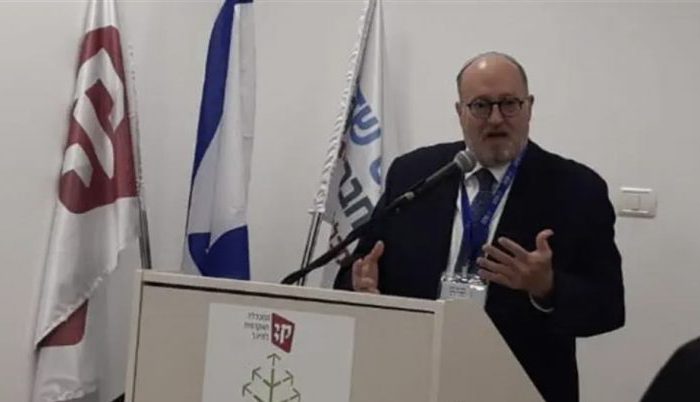In moments of personal hardship, it is natural to wonder: Why am I not being rewarded for my efforts? The Torah’s answer is painful, but empowering.
Parshat Bechukotai opens with a powerful promise: “If you walk in My statutes… I will give your rains in their season, the land shall yield its produce, and the trees shall yield their fruit.” This covenantal structure is echoed in its inverse later in the parsha’s tokhecha – the section of rebuke – which warns of the consequences when the nation turns away from God. These blessings and curses (the tokhecha) are overwhelmingly national in scope: they describe what happens to Am Yisrael collectively when we are faithful to God — or when we are not.
This emphasis on the collective fate of the Jewish people invites us to consider how divine reward and punishment function on a national versus an individual level. This contrast is sharpened in this week’s Haftorah from Yirmiyahu chapters 16–17. On the one hand, we are told that “cursed is a person who trusts in humankind,” (17:5) and “blessed is a person who trusts in God,” (17:7) pointing to individual spiritual responsibility. But the very same prophecy also includes a national warning: “The guilt of Judah is inscribed with a stylus of iron, engraved with an adamant point on the tablet of their hearts.” (17:1)
How do we reconcile these two elements of divine providence, the individual and the collective?
Perhaps an explanation can be derived from the striking assertion in the Talmud, Kiddushin 39b: “There is no reward for mitzvot in this world”.—and the rabbinic commentaries on it. At first glance, this appears to contradict the literal text of Bechukotai, where tangible blessings like agricultural prosperity seem to follow directly from adherence to mitzvot. What might our Sages have had in mind?
In his commentary Maharsha, Rabbi Shmuel Eidels resolves this by distinguishing between the types of reward. He clarifies that the Talmud’s assertion that there is no reward in this world refers specifically to individual reward — the eternal, spiritual compensation which is reserved for the World to Come. On the other hand, the material prosperity described in Bechukotai reflects communal reward; when the nation as a whole lives according to Torah values, there is an additional societal blessing in the form of rain or abundance. Individuals reap the benefit of these rewards, but the personal reward lies in the spiritual development of our soul – here and in the after-life.
This distinction has profound implications. In moments of personal hardship, it is natural to wonder: Why am I not being rewarded for my efforts? The Torah’s answer, painful but empowering, is that personal righteousness is not always met with immediate material reward. But when we act in unity, as a nation faithful to the Torah, we unlock divine blessing into our collective destiny.
Parshat Bechukotai and its Haftarah call on us to see beyond ourselves. Our spiritual lives are not only about personal growth, but about shaping a society worthy of God’s presence. The blessings of rain and peace are not rewards for individual piety — they are manifestations of a healthy, covenantal relationship between God and His people.
May we merit to build such a community, where our Torah is not only studied but lived; where our shared commitment brings light not only in the World to Come but to this world as well.Perhaps an explanation can be derived from the striking assertion in the Talmud, Kiddushin 39b: “There is no reward for mitzvot in this world”.—and the rabbinic commentaries on it. At first glance, this appears to contradict the literal text of Bechukotai, where tangible blessings like agricultural prosperity seem to follow directly from adherence to mitzvot. What might our Sages have had in mind?
In his commentary Maharsha, Rabbi Shmuel Eidels resolves this by distinguishing between the types of reward. He clarifies that the Talmud’s assertion that there is no reward in this world refers specifically to individual reward — the eternal, spiritual compensation which is reserved for the World to Come. On the other hand, the material prosperity described in Bechukotai reflects communal reward; when the nation as a whole lives according to Torah values, there is an additional societal blessing in the form of rain or abundance. Individuals reap the benefit of these rewards, but the personal reward lies in the spiritual development of our soul – here and in the after-life.
This distinction has profound implications. In moments of personal hardship, it is natural to wonder: Why am I not being rewarded for my efforts? The Torah’s answer, painful but empowering, is that personal righteousness is not always met with immediate material reward. But when we act in unity, as a nation faithful to the Torah, we unlock divine blessing into our collective destiny.
Parshat Bechukotai and its Haftarah call on us to see beyond ourselves. Our spiritual lives are not only about personal growth, but about shaping a society worthy of God’s presence. The blessings of rain and peace are not rewards for individual piety — they are manifestations of a healthy, covenantal relationship between God and His people.
May we merit to build such a community, where our Torah is not only studied but lived; where our shared commitment brings light not only in the World to Come but to this world as well.





